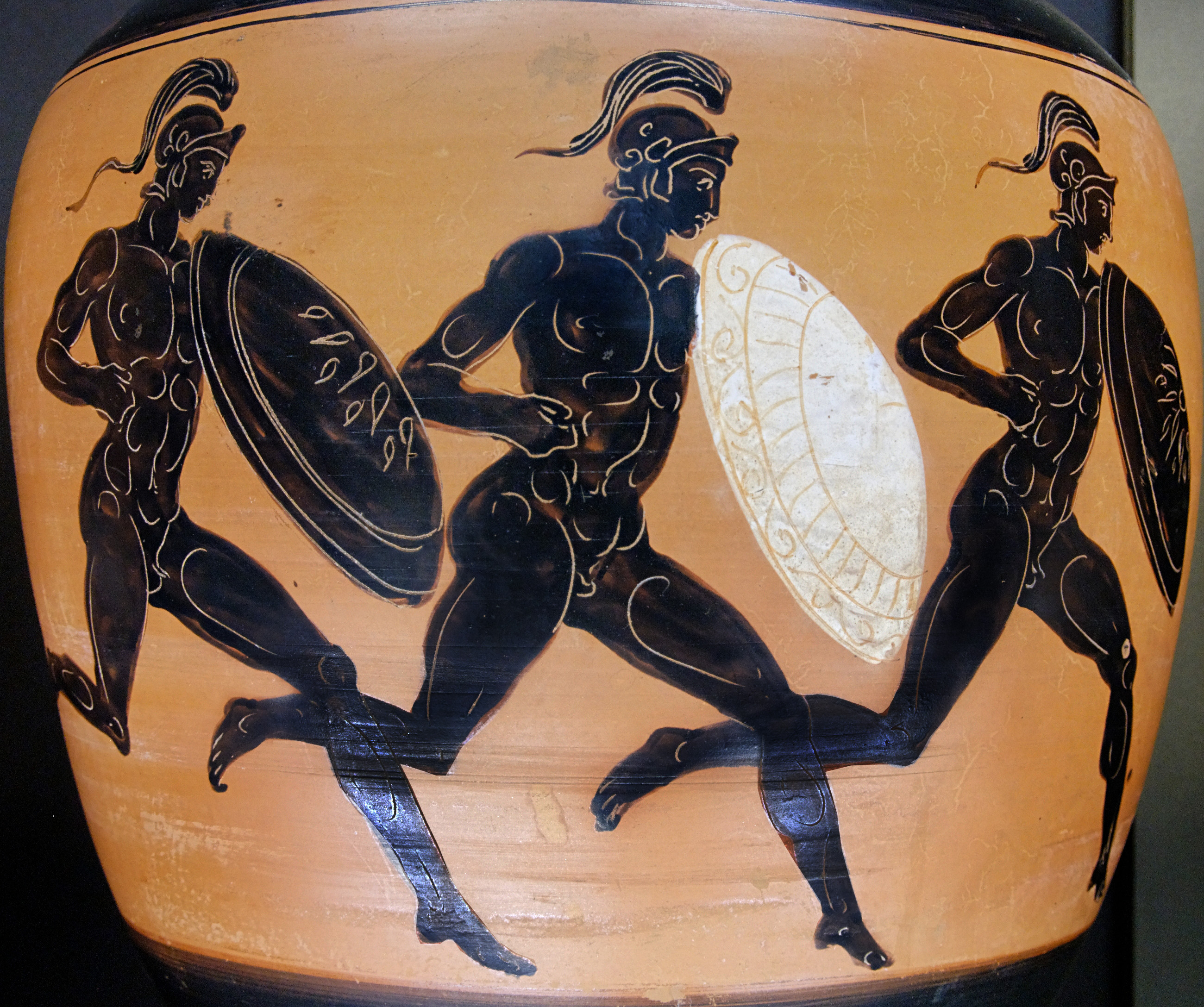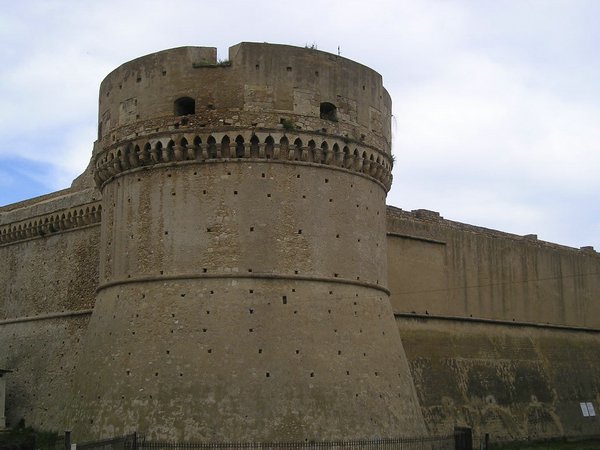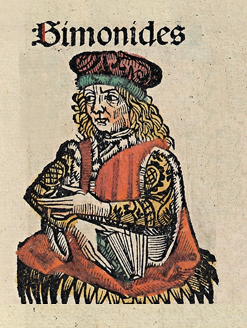|
Astylos Of Croton
Astylos of Croton or Astylus of Croton (Ἄστυλος/Ἀστύαλος ὁ Κροτωνιάτης) was an ancient Greek athlete who competed in three successive Olympic Games. In 488 and 484 BC he won the stadion and diaulos; in 480 BC he won the stadion, diaulos, and hoplitodromos. Astylos originally represented Croton, but later raced on behalf of Syracuse, according to Pausanias to please Hiero, brother of the tyrant of Syracuse. David Young suggests that Astylos' change of allegiance was solely economically motivated, arguing that Hiero "simply bought Astylos' services". After Astylos switched allegiance to Syracuse, the people of Croton took down a statue erected in his honour, and turned his house into a prison. Astylos' victory is the last known victory by an athlete from Croton in any of the four major Greek athletic competitions. Nothing is known of Astylos' origin. H. W. Pleket claims that he was a nobleman, but there is no ancient evidence for this; David Youn ... [...More Info...] [...Related Items...] OR: [Wikipedia] [Google] [Baidu] |
Ancient Olympic Games
The ancient Olympic Games (, ''ta Olympia''.), or the ancient Olympics, were a series of Athletics (sport), athletic competitions among representatives of polis, city-states and one of the Panhellenic Games of ancient Greece. They were held at the Panhellenic sanctuary, Panhellenic religious sanctuary of Olympia, Greece, Olympia, in honor of Zeus, and the Greeks gave them a aition, mythological origin. The originating Olympic Games are traditionally dated to 776 BC. The games were held every four years, or Olympiad, which became a unit of time in historical chronologies. These Olympiads were referred to based on the winner of their ''Stadion (running race), stadion'' sprint, e.g., "the third year of the eighteenth Olympiad when Ladas of Argos won the ''stadion''". They continued to be celebrated when Greece came under Greece in the Roman era, Roman rule in the 2nd century BC. Their last recorded celebration was in AD 393, under the emperor Theodosius I, but archaeological evidenc ... [...More Info...] [...Related Items...] OR: [Wikipedia] [Google] [Baidu] |
Stadion (running Race)
''Stadion'' or ''stade'' () was an ancient running event and also the faciliity in which it took place, as part of Panhellenic Games including the Ancient Olympic Games. The event was one of the five major Ancient Olympic pentathlon, Pentathlon events and the premier event of the ''gymnikos agon'' (γυμνικὸς ἀγών "nude competition"). From the years 776 to 724 BC, the ''stadion'' was the only event at the Olympic Games. The victor (the first of whom was Coroebus of Elis) gave his name to the entire four-year Olympiad, allowing modern knowledge of nearly all of them. The ''stadion'' was named after the facility in which it took place. This word became ''stadium'' in Latin, which became the English language, English "stadium". The race also gave its name to the unit of length, the Stadion (unit of length), stadion. There were other types of running events, but the ''stadion'' was the most prestigious; the winner was often considered to be the winner of an entire Games ... [...More Info...] [...Related Items...] OR: [Wikipedia] [Google] [Baidu] |
Diaulos (running Race)
The ''diaulos'' (, meaning "double pipe") was a double- stadion footrace of approximately , introduced in the 14th Olympiad of the ancient Olympic Games in 724 BC. The exact length of the race varied by venue due to the lack of standardized Greek measurements. For instance, the Stadium at Olympia measured , whereas the Stadium of Delphi was long. Scholars debate whether runners turned around a single post or used individual turning posts (''kampteres'') on the return leg. A single turning post could have disadvantaged runners in outer lanes, potentially adding to their distance. In contrast, inscriptions from Delphi mention "turning-posts" in the plural, and archaeological findings at Nemea also support the use of individual posts. Functionally, the diaulos resembled the modern 400-metre race. However, distinguishing it from the stadion race in ancient vase paintings is difficult due to visual similarities. One notable exception is a fragment of a Panathenaic amp ... [...More Info...] [...Related Items...] OR: [Wikipedia] [Google] [Baidu] |
Hoplitodromos
The ''hoplitodromos'' or ''hoplitodromia'' (Ancient Greek, Greek: , English language, English translation: "race of the Hoplite, hoplites") was an ancient Sport of athletics, foot race, part of the Ancient Olympic Games, Olympic Games and the other Panhellenic Games. It was the last foot race to be added to the Olympics, first appearing at the 65th Olympics in 520 BC, and was traditionally the last foot race to be held. Unlike the other races, which were generally run in the nude, the ''hoplitodromos'' required competitors to run wearing the ''hopla'', the helmet, greaves and heavy shield (''aspis'') from which the hoplite infantryman took its name, bringing the total encumbrance to at least 6 kg (12 pounds).Peter Krentz, “A Cup by Douris and the Battle of Marathon,” in Garrett G. Fagan and Matthew Trundle (eds.), New Perspectives on Ancient Warfare (Brill: Leiden, 2010) pp. 190ff. As the ''hoplitodromos'' was one of the shorter foot races, the heavy armor and shield were le ... [...More Info...] [...Related Items...] OR: [Wikipedia] [Google] [Baidu] |
Crotone
Crotone (; ; or ) is a city and ''comune'' in Calabria, Italy. Founded as the Achaean colony of Kroton ( or ; ), it became a great Greek city, home of the renowned mathematician-philosopher Pythagoras amongst other famous citizens, and one of the most important centres of Magna Graecia. It was known as Cotrone from the Middle Ages until 1928, when its name was changed to the current one. In 1992, it became the capital of the newly established Province of Crotone. History The promontory of Kroton was inhabited by indigenous populations, perhaps Oenotrians and Japigi, in the Bronze Age and early Iron Age. Foundation Kroton's '' oikistes'' (founder) was Myscellus, from the city of Rhypes in Achaea in the northern Peloponnese, after consulting the Delphic Oracle who announced: :''Cross the vast sea and next to the Esaro (river) you will found Kroton.'' The Achaeans were motivated, like others of the Greek colonisation, by the lack of cultivatable land in their mounta ... [...More Info...] [...Related Items...] OR: [Wikipedia] [Google] [Baidu] |
Syracuse, Sicily
Syracuse ( ; ; ) is a historic city on the Italian island of Sicily, the capital of the Italian province of Syracuse. The city is notable for its rich Greek and Roman history, culture, amphitheatres, architecture, and as the birthplace and home of the pre-eminent mathematician and engineer Archimedes. This 2,700-year-old city played a key role in ancient times, when it was one of the major powers of the Mediterranean world. Syracuse is located in the southeast corner of the island of Sicily, next to the Gulf of Syracuse beside the Ionian Sea. It is situated in a drastic rise of land with depths being close to the city offshore although the city itself is generally not so hilly in comparison. The city was founded by Ancient Greek Corinthians and Teneans and became a very powerful city-state. Syracuse was allied with Sparta and Corinth and exerted influence over the entirety of Magna Graecia, of which it was the most important city. Described by Cicero as "the ... [...More Info...] [...Related Items...] OR: [Wikipedia] [Google] [Baidu] |
Pausanias (geographer)
Pausanias ( ; ; ) was a Greek traveler and geographer of the second century AD. He is famous for his '' Description of Greece'' (, ), a lengthy work that describes ancient Greece from his firsthand observations. ''Description of Greece'' provides crucial information for making links between classical literature and modern archaeology, which is providing evidence of the sites and cultural details he mentions although knowledge of their existence may have become lost or relegated to myth or legend. Biography Nothing is known about Pausanias apart from what historians can piece together from his own writing. However, it is probable that he was born into a Greek family and was probably a native of Lydia in Asia Minor. From until his death around 180, Pausanias travelled throughout the mainland of Greece, writing about various monuments, sacred spaces, and significant geographical sites along the way. In writing his '' Description of Greece'', Pausanias sought to put together ... [...More Info...] [...Related Items...] OR: [Wikipedia] [Google] [Baidu] |
Hieron I
Hiero I (; also Hieron ; ) was the son of Deinomenes, the brother of Gelon and tyrant of Syracuse, Sicily, Syracuse in Sicily, from 478 to 467 BC. In succeeding Gelon, he conspired against a third brother, Polyzelos. Life During his reign, he greatly increased the power of Syracuse. He removed the inhabitants of Naxos (Sicily), Naxos and Catania to Leontini, peopled Catania (which he renamed Aetna (city), Aetna) with Dorians, concluded an alliance with Theron of Acragas, Theron, the tyrant of Acragas (Agrigentum), and espoused the cause of the Locrians against Anaxilas, tyrant of Rhegium. His most important military achievement was the defeat of the Etruscans at the Battle of Cumae (474 BC), by which he saved the Greeks of Campania from Etruscan domination. A bronze helmet (now in the British Museum), with an inscription commemorating the event, was dedicated at Olympia, Greece, Olympia. Hiero's reign was marked by the creation of what is believed to be the first secret police i ... [...More Info...] [...Related Items...] OR: [Wikipedia] [Google] [Baidu] |
Simonides
Simonides of Ceos (; ; c. 556 – 468 BC) was a Greek lyric poet, born in Ioulis on Kea (island), Ceos. The scholars of Hellenistic Alexandria included him in the canonical list of the nine lyric poets esteemed by them as worthy of critical study. Included on this list were Bacchylides, his nephew, and Pindar, reputedly a bitter rival, both of whom benefited from his innovative approach to lyric poetry. Simonides, however, was more involved than either in the major events and with the personalities of their times. Gotthold Ephraim Lessing, Lessing, writing in the Age of Enlightenment, Enlightenment era, referred to him as "the Greek Voltaire." His general renown owes much to traditional accounts of his colourful life, as one of the wisest of men; as a greedy miser; as an inventor of a system of mnemonics; and the inventor of some letters of the History of the Greek alphabet, Greek alphabet (). Such accounts include fanciful elements, yet he had a real influence on the so ... [...More Info...] [...Related Items...] OR: [Wikipedia] [Google] [Baidu] |
Epinicion
The ''epinikion'' or ''epinicion'' (: ''epinikia'' or ''epinicia'', Greek , from ''epi-'', "on", + '' nikê'', "victory") is a genre of occasional poetry also known in English as a victory ode. In ancient Greece, the ''epinikion'' most often took the form of a choral lyric, commissioned for and performed at the celebration of an athletic victory in the Panhellenic Games and sometimes in honor of a victory in war. Major poets in the genre are Simonides, Bacchylides, and Pindar. Origins Since the poets most often call their victory songs ''hymnoi'' (), it has been conjectured that hymns for Heracles, honored as the founder of the Olympic Games, were the original model for the athletic ''epinikion''. Victory odes are also associated with the Dioscuri; Pindar uses the term "Castor-song" (), and Polydeuces (Pollux), the mortal twin of Castor, was a boxer. Although the best-known ''epinikia'' appear to have been composed for a chorus, they may have originally been performed by a sol ... [...More Info...] [...Related Items...] OR: [Wikipedia] [Google] [Baidu] |
Pythagoras Of Samos
Pythagoras of Samos (; BC) was an ancient Ionian Greek philosopher, polymath, and the eponymous founder of Pythagoreanism. His political and religious teachings were well known in Magna Graecia and influenced the philosophies of Plato, Aristotle, and, through them, Western philosophy. Modern scholars disagree regarding Pythagoras's education and influences, but most agree that he travelled to Croton in southern Italy around 530 BC, where he founded a school in which initiates were allegedly sworn to secrecy and lived a communal, ascetic lifestyle. In antiquity, Pythagoras was credited with mathematical and scientific discoveries, such as the Pythagorean theorem, Pythagorean tuning, the five regular solids, the theory of proportions, the sphericity of the Earth, the identity of the morning and evening stars as the planet Venus, and the division of the globe into five climatic zones. He was reputedly the first man to call himself a philosopher ("lover of wis ... [...More Info...] [...Related Items...] OR: [Wikipedia] [Google] [Baidu] |
List Of Olympic Winners Of The Stadion Race
The following is a list of winners of the Stadion (running race), Stadion race at the Ancient Olympic Games, Olympic Games from 776 BC to 225 AD. It is based on the list given by Eusebius of Caesarea using a compilation by Sextus Julius Africanus. The Stadion race was the first and most important competition of the ancient Olympiads and the names of the winners are used by many Greek authors to date historic events. * 1st Olympiad 776 BC - Coroebus of Elis * 2nd Olympiad 772 BC - Antimachus of Elis * 3rd Olympiad 768 BC - Androclus of Messenia * 4th Olympiad 764 BC - Polychares of Messenia * 5th Olympiad 760 BC - Aeschines of Elis * 6th Olympiad 756 BC - Oebotas of Dyme * 7th Olympiad 752 BC - Diocles of Messenia (; called Daïcles, , in Dionysius of Halicarnassus, Dionysius's chronicle) * 8th Olympiad 748 BC - Anticles of Messenia * 9th Olympiad 744 BC - Xenocles of Messenia * 10th Olympiad 740 BC - Dotades of Messenia * 11th Olympiad 736 BC - Leochares of Messenia * 12th O ... [...More Info...] [...Related Items...] OR: [Wikipedia] [Google] [Baidu] |







